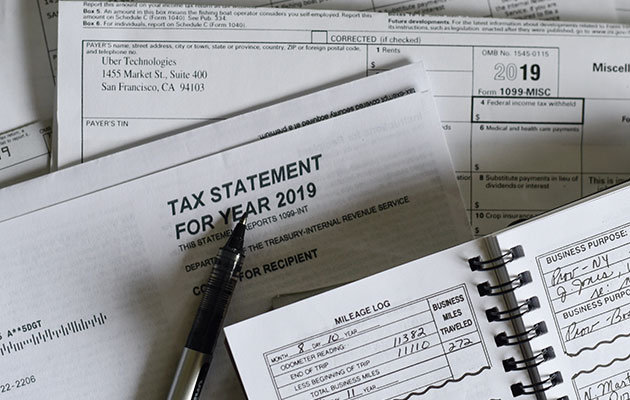Tax Court Granted Authority to Adjudicate Criminal Tax Cases
On 27 May 2025, the Act for the Establishment of and Procedure for Tax Court (No. 3) 2025 (B.E.2568) (“Act”) was published in the Government Gazette. The Act enter into force on November 24 (“Effective Date”), 180 days after its publication.
Criminal tax cases arising before the Effective Date will be adjudicated by criminal courts until final judgments are rendered.
Key Features and Legal Changes:
1. Expansion of Jurisdiction to include Criminal Tax Cases.
On and after the Effective Date, the Tax Court will be authorized to hear criminal tax offences arising under the Revenue Code, Customs Act, and Excise Tax Act, as well as additional offenses designated by Royal Decree. This brings criminal tax disputes under the purview of specialized tax judges. However, cases that fall within the jurisdiction of the Juvenile and Family Court will remain outside the scope of the Tax Court’s authority.
2. Clarification of Jurisdiction in Complex Cases
When a single act violates multiple tax statutes, the Tax Court may consider all of the violations at once. In scenarios that involve multiple acts, some of which fall within and others outside the jurisdiction of the Tax Court, the Tax Court may choose to consolidate and hear all of the issues, or to hear only those matters within its jurisdiction, while directing the remainder to other courts.
3. Redefining “Tax Cases”
The Act broadens the definition of “tax case” to include both civil and criminal tax matters, reflecting the Tax Court’s expanded role. The Act gives the Tax Court significant authority over the following criminal offences:
- A single act that violates several provisions of law
If a single act violates several provisions of law, and at least one of those provisions falls within the jurisdiction of the Tax Court, the Tax Court also has jurisdiction to adjudicate the offences under the other provisions. - Commission of several distinct and different offences
Where an individual or entity commits several different and distinct offenses, some of which fall within, and others of which fall outside the jurisdiction of the Tax Court, the Tax Court may choose to (a) adjudicate all of the related offenses or (b) decline to adjudicate the specific acts that fall outside its jurisdiction. If the Tax court declines to exercise jurisdiction, the plaintiff may file a separate action with other courts that have jurisdiction over the relevant acts or claims. The Tax Court will make this choice considering the need to prioritize convenience and the interests of justice.
4. Procedural Modernization/Framework
- Previously, tax cases relied solely on the Civil Procedure Code (mutantis mutandis)
- Now, the Act allows the Tax Court to apply the procedural frameworks of the Criminal Procedure Code, as well as procedures used in the district courts. This dual approach is designed to facilitate alignment between civil and criminal tax matters.
5. Differentiated Hearing Notice Protocols
- Civil cases: If a party fails to attend a hearing, it is the party’s own responsibility to follow up and obtain a new date; failure to do so counts as constructive notice of further proceedings.
- Criminal cases: The foregoing rule does not apply, strengthening due process protections for criminal defendants.
6. Appeals
- Criminal Tax Cases: Appeals will follow the Criminal Procedure Code.
- Civil Tax Cases: Appeals will continue to follow the Civil Procedure Code.
7. Supplementary Regulations by the Chief Judge
The Act does not cover every procedural detail (e.g., evidence rules), so it empowers the Chief Judge of the Central Tax Court to issue more detailed regulations, subject to approval by the Chief Justice of the Supreme Court.
Appeal procedure in the Appeal and Supreme Tax Courts
The procedures for appeals of judgments or orders in criminal tax cases to the Appeal and Supreme Tax Courts will comply with the relevant sections of the Criminal Procedure Code, mutatis mutandis.
This article is intended to provide only a regulatory overview, and does not provide comprehensive analysis or constitute legal advice. If you have any questions about this or other areas of tax law, please contact our Tax Team at SCL Nishimura & Asahi Limited.
Punjaporn Kosolkitiwong
Partner
Areeya Ananworaraks
Counsel
Nuttanicha Pansottee
Associate









Punjaporn Kosolkitiwong has more than 40 years of experience in litigation and general practice She got her lawyer license since 1984 and being a Thai Barrister-at-Law in 1988. She has worked as a litigator since 1984. She has expertise in litigation and arbitration, Intellectual property, labor, real estate, general practice, investment in Thailand, joint-venture projects, corporate matters, finance and banking, government and international commercial contracts, taxation, international and local securities transactions. Prior to joining SCL Nishimura & Asahi, she was one of senior partners at Dej-Udom & Associates, as the Litigation Partner, where she routinely handled both civil and criminal cases, as well as tax-related matters, intellectual property cases and a multitude of international trade cases in both the Bangkok and provincial courts and also many arbitration cases. She joined SCL Nishimura & Asahi Co., Ltd in May 2022 as a partner in Dispute & Resolution Department (“DR”) where she supervises litigations in both civil and criminal cases, IP cases and arbitration cases.
Outside of work, she used to served as a lecturer in Bankruptcy and Rehabilitation Law for the Lawyers Council of Thailand for more than 10 years. She used to be a speaker on Insolvency for Inter-Pacific Bar Association held in 1998 and also a working group on Insolvency Law Reform, representing Thailand, for Asian Development Bank (ADB) in 2001-2002.